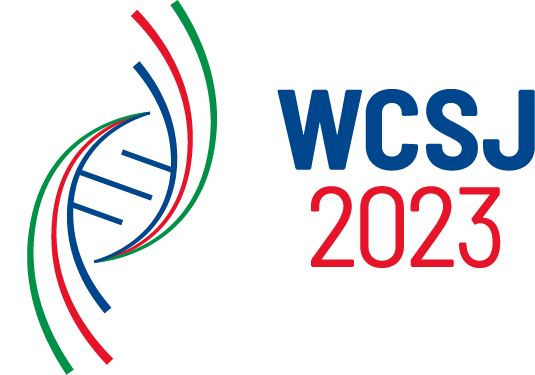| Name of Meeting | World Conference of Science Journalists 2023 | WCSJ 2023 |
| Conference Theme | Science Journalists - Reboot |
| Date of Meeting | March 27-31, 2023 |
| Venue | Botanical Gardens Medellín, Antioquia, Colombia |
| Official Language of Meeting | English |
| Expected Attendance | 750 |
| Hosted by | World Federation of Science Journalists |
| Meeting Organizer | MCI Group Canada Email: info@wcsj.org |
WHAT HAPPENS AT THE WORLD CONFERENCE OF SCIENCE JOURNALISTS?
Over the past two decades, the World Federation of Science Journalists (WFSJ) has mounted the World Conference of Science Journalists (WCSJ) every other year. The event has been held in cities across the globe, with the next edition arriving at Medellín, Colombia, in March 2023. Each of these gatherings lasts about a week and attracts hundreds of participants from the WFSJ membership, including some 10,000 science writers in 51 countries.
What do they do?
Like any assembly of professionals, attendees at WCSJ look forward to renewing acquaintances in person, catching up with friends and sharing the details of their most recent work. At the same time, this conference is an unrivalled showcase for science journalism’s state of the art. High-profile authors are on hand to talk about their books and answer questions about their methods and motivations. Researchers in cutting-edge areas of science, technology, and medicine are ready to interact with reporters who are eager to make even the most complex topics accessible to the widest possible audience. And the WFSJ highlights its own efforts to support and enhance science journalism through the 66 associations that make up the global membership.
What will take place at WCSJ2023 in Medellín?
This conference marks the first time the WCSJ has been held in the Global South, where a significant proportion of WFSJ members live and work. Many of the attendees are expected to come from Latin America, and much of the program content will deal with matters pertaining to science journalism in this region. More specifically, this content will deal with highly relevant topics such as these:
- building relationships among new and established journalists within various local communities as well as across international borders
- environmental matters, including the social and political impact of natural resource exploitation, the future of food production, and our ever more detailed understanding of changes in the planet’s climate
- energy sources, with an emphasis on the evolution and feasibility of innovations that are cost effective as well as environmentally sustainable
- the practical and ethical implications of biomolecular tools that can manipulate the genetic code of plants, animals, and human beings
- how to discuss questions of risk and uncertainty in science
- the ongoing impact of the Covid-19 pandemic on journalism, which has highlighted the need to confront misinformation and disinformation
- the demand for “solutions” journalism, which explores appropriate responses to major challenges faced by economies and societies, rather than simply dwelling on problems
- the role of public policies that deal with science and technology
- the potential of new technologies to transform media, for better or for worse
